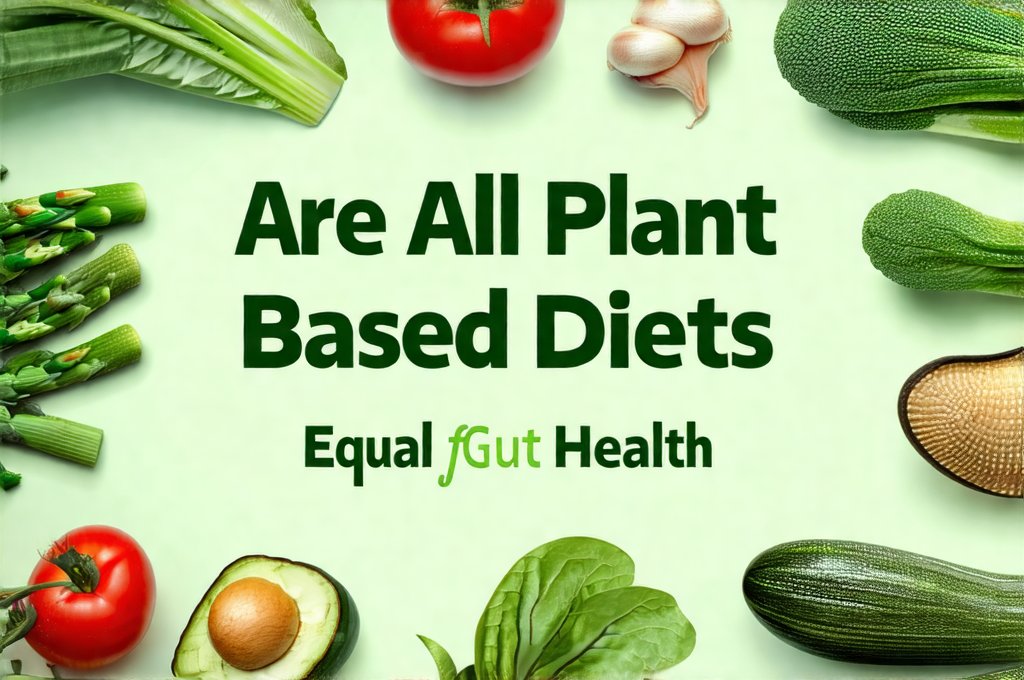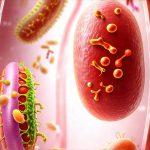The burgeoning interest in plant-based diets is driven by diverse motivations – ethical concerns, environmental sustainability, and perceived health benefits. While often used interchangeably, ‘plant-based’ encompasses a vast spectrum of eating patterns, ranging from fully vegan to flexitarian approaches that incorporate some animal products. This broadness raises an important question: are all plant-based diets equal when it comes to fostering optimal gut health? The answer is decidedly no. Simply eliminating animal products doesn’t automatically guarantee a thriving gut microbiome; the quality of the plant foods consumed, dietary diversity, and individual physiological factors play crucial roles in determining the impact on our digestive ecosystem.
Gut health has emerged as a cornerstone of overall wellbeing, influencing everything from immune function to mental health. The trillions of microorganisms residing within our digestive tract – collectively known as the gut microbiome – are deeply involved in nutrient absorption, vitamin synthesis, detoxification, and protection against pathogens. A diverse and balanced microbiome is generally considered indicative of good gut health, while imbalances (dysbiosis) have been linked to various chronic diseases. Therefore, understanding how different plant-based approaches affect this complex ecosystem is vital for maximizing their potential benefits. It’s not just about what we remove from our diet, but more importantly, what nutritious elements we actively include. You can learn more about identifying risks with a low enzyme diet.
The Spectrum of Plant-Based Diets and Their Initial Impact
Plant-based diets can be broadly categorized based on the degree of animal product restriction. Vegan diets exclude all animal products, including meat, poultry, fish, dairy, eggs, and sometimes honey. Vegetarian diets allow for varying levels of animal product inclusion – lacto-ovo vegetarians consume dairy and eggs; lacto-vegetarians include dairy but not eggs; ovo-vegetarians eat eggs but no dairy. Flexitarian diets are more lenient, prioritizing plant foods while occasionally incorporating meat, poultry, or fish. Each variation will have a different initial impact on the gut microbiome.
The sudden shift to a fully plant-based diet, particularly for those accustomed to a Western dietary pattern high in processed foods and animal fats, can initially lead to changes in microbial composition. An increase in fiber intake promotes the growth of beneficial bacteria that ferment carbohydrates, producing short-chain fatty acids (SCFAs) like butyrate, propionate, and acetate – crucial metabolites that nourish colon cells, reduce inflammation, and enhance gut barrier function. However, this transition can also temporarily cause digestive discomfort such as bloating or gas as the microbiome adapts to the new food source. It’s a process of microbial adaptation, and gradual increases in fiber are often recommended to minimize these effects.
Conversely, highly restrictive plant-based diets lacking sufficient diversity might inadvertently limit the variety of substrates available for microbial fermentation, potentially reducing overall microbiome richness. This is where the concept of ‘plant-based junk food’ comes into play – relying heavily on processed vegan alternatives or refined carbohydrates doesn’t necessarily equate to a gut-healthy diet. A truly beneficial plant-based approach prioritizes whole, unprocessed foods. Understanding food labels is key when making these choices.
The Role of Fiber and Prebiotics
Fiber is arguably the most important dietary component for gut health, and plant-based diets naturally excel in fiber provision. However, not all fibers are created equal. There are two main types: soluble and insoluble. Soluble fiber dissolves in water to form a gel-like substance, slowing digestion and promoting satiety. Good sources include oats, beans, apples, and citrus fruits. Insoluble fiber adds bulk to the stool, aiding in regularity. Sources include whole grains, vegetables, and wheat bran. Both are essential for a healthy gut, but they exert different effects.
Beyond total fiber intake, focusing on prebiotic fibers is particularly beneficial. Prebiotics are non-digestible carbohydrates that selectively feed specific beneficial bacteria in the colon. These include fructans (found in onions, garlic, leeks), galacto-oligosaccharides (GOS) found in legumes, and resistant starch found in cooked and cooled potatoes or rice. By promoting the growth of these ‘good’ bacteria, prebiotics contribute to a more diverse and resilient microbiome. A diet rich in prebiotic fibers can significantly enhance SCFA production, leading to improved gut barrier integrity and reduced inflammation.
It’s important to note that some individuals may experience increased gas or bloating with high intakes of certain prebiotic foods due to their fermentation by gut bacteria. Starting slowly and gradually increasing intake is key, as is identifying personal tolerances. The goal isn’t necessarily maximizing fiber intake but optimizing it for individual comfort and microbial benefit. You might also consider probiotic rich foods to support a healthy microbiome.
Beyond Fiber: Polyphenols & Fermented Foods
Polyphenols are a diverse group of plant compounds with potent antioxidant and anti-inflammatory properties. Found abundantly in fruits, vegetables, tea, coffee, and dark chocolate, polyphenols aren’t well absorbed in the small intestine; instead, they reach the colon where they’re metabolized by gut bacteria into beneficial metabolites. This process not only enhances polyphenol bioavailability but also contributes to microbial diversity and SCFA production. Consuming a wide variety of colorful plant foods ensures a broad spectrum of polyphenol intake.
Fermented plant-based foods offer another powerful strategy for supporting gut health. Foods like sauerkraut, kimchi, tempeh, miso, and kombucha contain live microorganisms (probiotics) that can temporarily colonize the gut and contribute to microbial diversity. While probiotic supplements have their place, obtaining probiotics through food sources often provides a more natural and sustainable approach. However, it’s crucial to remember that the effects of probiotics are strain-specific and may vary between individuals.
Individual Variability & Personalized Nutrition
The gut microbiome is highly individualized, influenced by factors such as genetics, age, geographic location, antibiotic use, stress levels, and diet. What works for one person might not work for another. This highlights the importance of personalized nutrition when it comes to plant-based diets. Individuals with pre-existing gut issues like irritable bowel syndrome (IBS) or small intestinal bacterial overgrowth (SIBO) may need to carefully tailor their plant-based approach, potentially avoiding certain high-FODMAP foods or focusing on easily digestible options.
Monitoring your body’s response to different plant-based foods is crucial. Pay attention to symptoms like bloating, gas, diarrhea, or constipation and adjust your diet accordingly. Food journaling can be a helpful tool for identifying trigger foods. Furthermore, considering gut microbiome testing (though still evolving in its reliability and interpretation) might provide insights into individual microbial composition and guide dietary modifications. Ultimately, the most effective plant-based diet is one that supports both gut health and overall wellbeing, tailored to your unique needs. If you suspect a reaction, it’s worth exploring if seed oils are playing a role.
Practical Steps for a Gut-Friendly Plant-Based Diet
Here are some steps you can take to optimize your plant-based diet for gut health:
- Prioritize whole, unprocessed plant foods: Focus on fruits, vegetables, legumes, whole grains, nuts, and seeds.
- Increase dietary diversity: Aim for a wide range of colorful plant foods to provide diverse substrates for microbial fermentation.
- Gradually increase fiber intake: Introduce fiber-rich foods slowly to minimize digestive discomfort.
- Incorporate prebiotic foods: Include onions, garlic, leeks, bananas, oats, and legumes in your diet.
- Consider fermented plant-based foods: Add sauerkraut, kimchi, tempeh, or miso to your meals.
- Stay hydrated: Water is crucial for fiber’s efficacy and overall digestive function.
- Listen to your body: Pay attention to how different foods affect you and adjust your diet accordingly.
By understanding the nuances of plant-based diets and prioritizing gut health, we can unlock their full potential and cultivate a thriving microbiome that supports long-term wellbeing. It’s not simply about what we eliminate; it’s about thoughtfully incorporating nutrient-rich plant foods that nourish our digestive ecosystem and empower us to flourish. Learning how to train your gut can also significantly improve your tolerance of these dietary changes, and you might want to be aware of packaged health foods. Finally, if you are unsure about your gut health, consider gut tests.


















